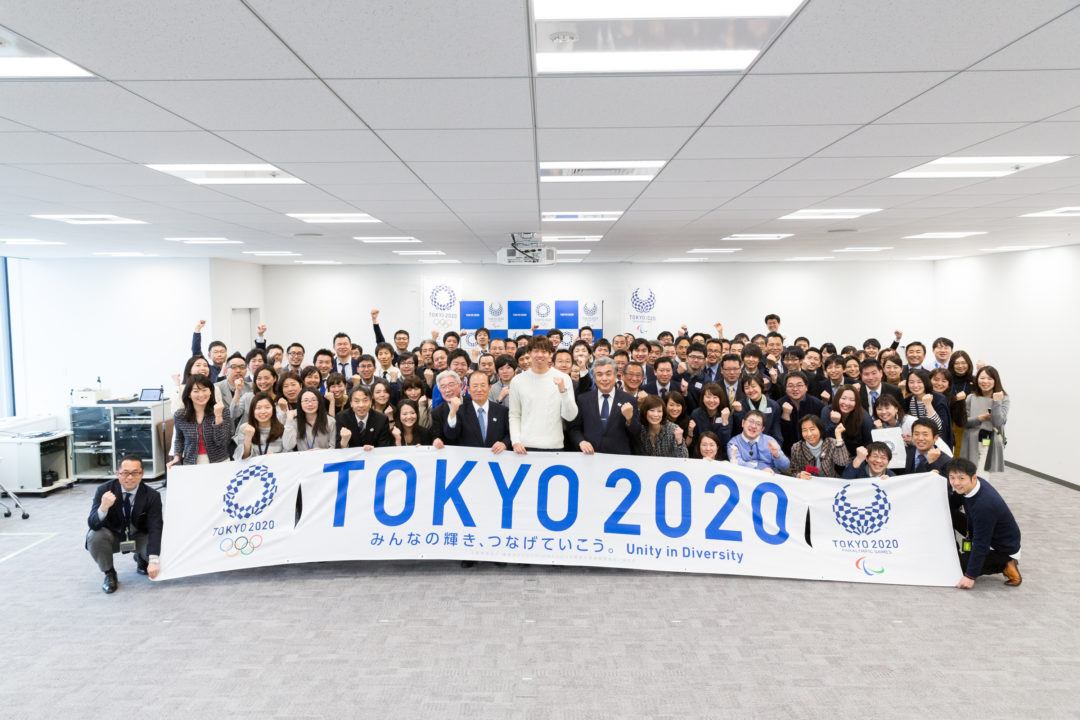With the construction of the various Olympic venues, including the $500 million-plus aquatic center, winding down in the run-up to the Tokyo 2020 Summer Olympic and Paralympic Games, the Organizing Committee is still trying to find new ways to combat the blazing heat and pollution that have put the city in the headlines during the months leading to the Games. This comes amid the discovery of 187 bodies at the new National Stadium’s construction site. Here’s the latest on those stories:
SPECTATORS ALLOWED TO BRING DRINKS TO GAMES VENUES
According to Japanese news outlet Kyodo, spectators at the 2020 Tokyo Olympics can each bring one bottled non-alcoholic drink up to 750 milliliters into venues as a “special measure” to combat sweltering temperatures.
Having reviewed the test events held over the summer, they also intend to increase the numbers of drinking fountains and shade tents at venues, along with paper fans and cooling towels that can be worn around the neck.
Information about measures to combat heat will be distributed through the Olympic mobile app, which will also contain maps of each venue indicating “cool spots” providing shade, cooling fans and licensed goods.
TOKYO OLYMPICS GO GREEN
Innovations such as roads that reflect heat and water-absorbing pavements will help the Olympic Games in Tokyo be a “carbon-neutral event,” according to organizers.
The International Olympic Committee’s (IOC) sustainability strategy seeks to maximize the use of existing facilities, ensuring new constructions benefit local communities, and limiting the event’s greenhouse gas emissions.
By doing so, Tokyo 2020 organizers aim to offset all carbon emissions generated in an effort to reduce pollution during the Games.
REMAINS OF 187 BODIES REMOVED FROM NEW NATIONAL STADIUM PRIOR TO CONSTRUCTION
Per The Japan Times, the remains of at least 187 people dating back to the early 1900s or before were retrieved from the site of the new National Stadium in Shinjuku Ward before construction began, according to officials from the Tokyo Metropolitan Government. The site used to be the location of a temple and a graveyard between 1732 and 1919.
The remains, including those of infants, were discovered when the Tokyo Metropolitan Archaeological Center investigated the site and the surrounding area from July 2013 to August 2015, when the old stadium was being knocked down, officials said.
The new stadium will be the main venue for the 2020 Olympics and Paralympics, and will seat over 80,000 with special temporary seating being installed for the Games.
THE AUSTRALIAN BROADCAST CORPORATION WILL NOT LIVE BROADCAST THE TOKYO OLYMPICS ON ABC RADIO
British news outlet The Guardian is reporting that the Australian Broadcast Corporation will drop its radio live broadcast for the forthcoming Tokyo Olympics.
The ABC has blamed budget cuts among the reasons Australian audiences will not be able to listen to the Tokyo Olympics live on ABC radio next year, ending a 67-year-old sports broadcasting tradition.
The public broadcaster has declined to buy the non-commercial broadcast rights from rights-holder Seven this year due to the cost of covering the Games as well as budget pressures and the “changing broadcast environment.”
